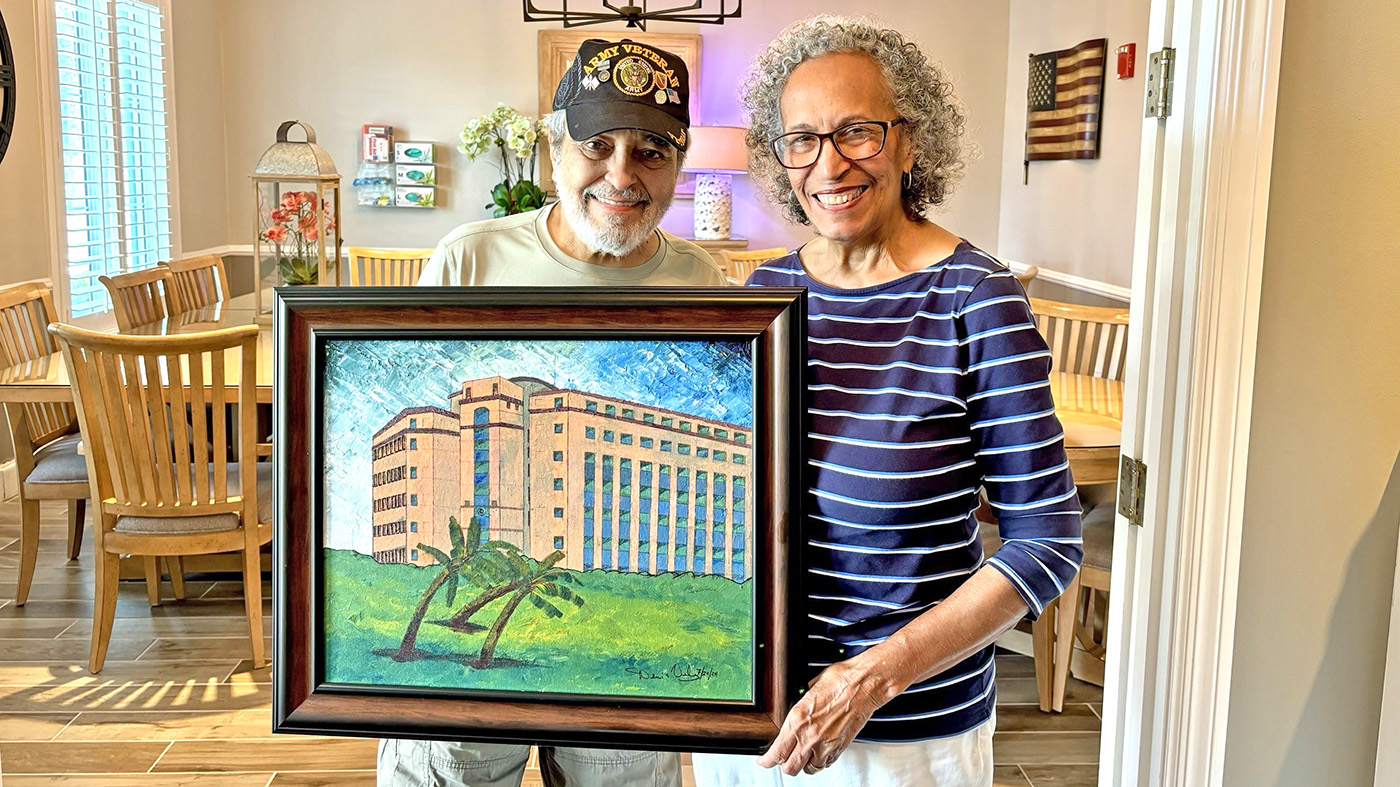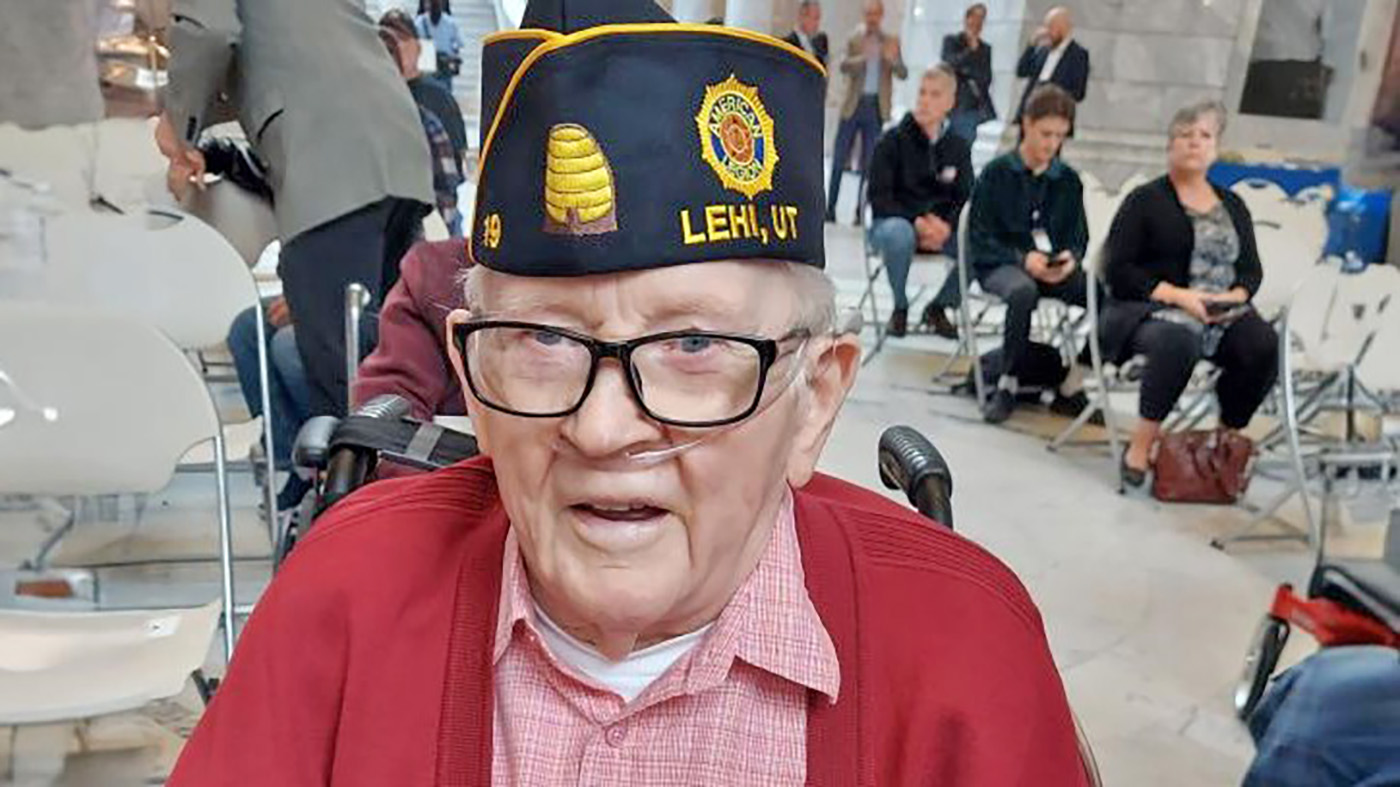One of the pressing issues facing Veterans in rural communities is the lack of fast, reliable internet service, or any internet service at all. According to VHA’s Office of Rural Health, 42% of rural Veterans enrolled in VA do not have internet access that would support their use of VA telehealth and other online services.
Rural areas may be those that are sparsely populated, or that are not closely linked socio-economically to larger urban centers.
The lack of those rural Veterans’ access to reliable internet at home is known as “the digital divide.”
VHA, together with Microsoft, as well as with other nongovernmental partners such as national wireless service carriers, Walmart, and Philips, is helping bridge that digital divide. These partnerships aim to broaden Veterans’ access to learning, working, communicating, and accessing VA services and benefits online which in turn enhances Veterans’ digital inclusion and their ability to participate in their own health care.
Veterans in rural areas may face complex health care challenges that could be eased by having access to reliable internet and telemedicine according to the Office of Rural Health. For example, Veterans in rural areas may experience fewer transportation options or challenging journeys to receive care.
Eliminating 230-mile drive to VA medical center
Before a telemedicine clinic was established in Elko, Nevada, Veterans who lived in that rural area had to travel to VA medical centers located in other cities at least 230 miles away.
VHA has worked to address the digital inclusion challenges faced by Veterans in rural areas in many ways.
- VHA has partnered with T-Mobile to host the VA Video Connect application for Veterans (which connects Veterans to their health care providers on a secure line from any location) on all devices with T-Mobile service for free without using up their data.
- We have partnered with Walmart, Philips, and Veteran Service Organizations to set up remote clinics—known as Atlas sites—for Veterans to access telehealth services closer to their homes; and it has loaned internet-connected iPads to Veterans in need of a telehealth solution but who didn’t have a home computer or internet access.
Most recently, VHA has entered into a partnership with Microsoft aiming to improve rural Veterans’ online access to VA services and benefits. VHA’s offices of Community Engagement, Connected Care, Rural Health, Telehealth Services and VA’s Office of Information and Technology, will work with Microsoft in this partnership.
The partners will help identify opportunities to bring broadband internet access to rural areas of the country with large populations of Veterans who have limited internet access, and who might benefit from online VHA services and benefits.
The Microsoft Airband Initiative partners with internet service providers (ISPs) to identify and provide broadband access to rural communities across the U.S. who currently lack such access.
In alignment with the Microsoft Airband Initiative, Microsoft will work with its ISP partners to develop and grow Airband program offerings for the Veteran population as well.
Dr. Kevin Galpin: “VA has a goal of making all primary care and mental health teams available by video by the end of 2020. To access video technology in the home, Veterans must have reliable internet, and through partnerships like these, the digital divide can shrink.
“We really want Veterans to have the opportunities that come with being connected. There is lots of value in being able to maintain social relationships, conduct job searches online, and connect with VA. We know limited internet access is a problem and we’re exploring a multitude of options. We’re looking out for Veterans.”
About the author: Galpin is the executive director of VHA Telehealth Services, aligned under the Office of Connected Care.
Topics in this story
More Stories
Army Veteran Denis Velez donated a painting of his VA hospital as a way of giving back for his treatment there.
Ron Anderson's story of being caregiver for his father in his final years is a journey of love and duty.
Ignoring challenging emotions can negatively impact our health. Breathe through worry, anger and sadness in 5 minutes with this week's #LiveWholeHealth practice.








The partners will help identify opportunities to bring broadband internet access to rural areas of the country
I was given an I-pad with Version as the internet provider and where I live I still can’t use it to get my “Telehealth “. I get two bars until I try to get online and it drops to nothing. Any ideas?
Unable to get internet service that is affordable and reliable on the campus of Hines Veterans Hospital, Building 53.
Food recalls are being displayed on TV stations web sites, unavailable to our residents! A health problem.
My Healthy Vet gets timed out too often, delaying messages to doctors about spy
Please we need to know how to get service that is only slightly faster than dial up, which costs up to 40 dollars for low income veterans and seniors in this HUD property
The lack of those rural Veterans’ access to reliable internet at home is known as “the digital divide.”
T-Mobile all the way
I am a 100% disabled vet bbn in northern florida it would be great to have reliable internet here what a wonderful idea in my opinion besides what is available for internet here is not very reliable or fast or accurate what’s here fails in the middle of a session crashes or is intermittant
Thanks the rual internet is VERY Big please follow thru with it.